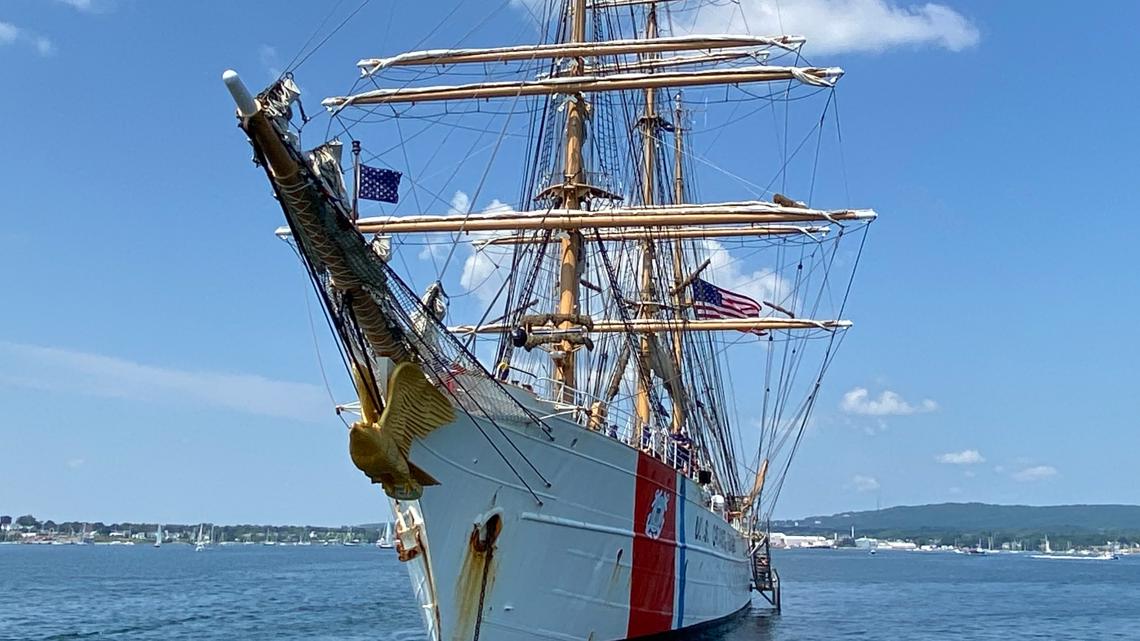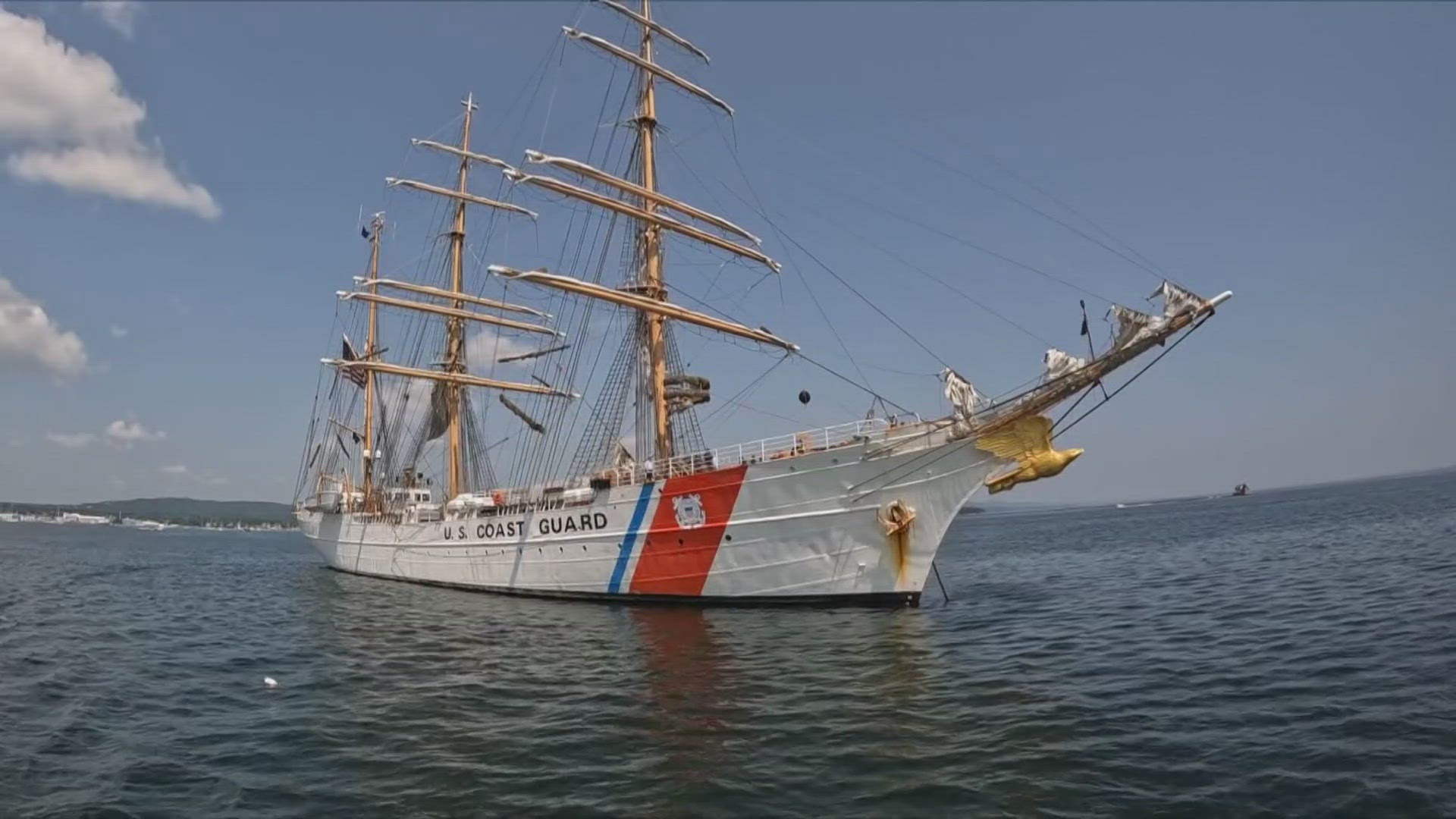ROCKLAND, Maine — Rockland is a city on the sea whose commercial and social life has largely centered around just that. Literally in the middle of the city's waterfront, appropriately perhaps, is the U.S. Coast Guard.
Rockland has had a close relationship with the service for nearly 80 years; going back to World War II. That’s when the current base was officially established. Although there was a Coast Guard presence in the city during the war, the life-saving service had a long history in Maine before that.
Rockland leaders decided in 2008 to make their support for the Coast Guard a formal part of their relationship with the military, by establishing Rockland as a "Coast Guard City." The designation is awarded by the Coast Guard itself to base communities that demonstrate strong support for the service and its members stationed there.
Dot Black, one of the leaders of the 2008 effort and still a driving force to maintain the close ties between the city and the service, said, "It's to make our local Coast Guard feel welcome in our community."
Black and her late husband, Ken Black, who retired from the Coast Guard with the rank of a commander, founded the Maine Lighthouse Museum by amassing a remarkable collection of Coast Guard artifacts from the lighthouse operations along the coast and presenting those to the public to share that history.
When Ken passed away, Dot Black continued his legacy and remained a driving force behind the museum, while maintaining the Coast Guard city relationship.
The Coast Guard renews its relationship for five years at a time, and renewal was in the works last winter when Dot decided they should have a major demonstration of the city’s ties to the Coast Guard. That signal, she thought, should be provided by having a big ship come to town: the historic, three-masted sailing barque Eagle.
"I was sitting in Florida this winter and thought it would be a good idea if she came back. So I called a few people and here she is," Dot smiled, looking out from the dock to where the Eagle rode at anchor in Rockland’s outer harbor.
The Eagle is a 295-foot ship, originally built in 1936 for the navy of Nazi Germany. The U.S. took the Eagle after WWII, and she is used as a training ship for future Coast Guard officers. With one "schooner rig" mast and two square rig masts, the ship has 23 sails, and the trainees can literally "learn the ropes" of sailing and navigation as they spend weeks or months at a time on the Eagle.


For this visit, however, the ship was not able to tie up at the Coast Guard dock and instead stayed anchored in the outer harbor. Not to be deterred, the Coast Guard City celebration went on, with more than 60 local officials, Coast Guard retirees, and community leaders boarding a borrowed ferry to have a celebratory dinner on board the big ship.
For the Rockland Coast Guard base, it was a chance to also show their appreciation for the support they receive from local people.
"I’ve had 21 years in the Coast Guard," base commander CWO2 Jason Latiolais, said. "And can say 100 percent Rockland has been the most welcoming of any place I have been at."
There are actually four Coast Guard commands centered on the base on Tillson Avenue in downtown Rockland:
- The base itself handles communications and search and rescue missions
- The icebreaker Thunder Bay
- The buoy tender Abbie Burgess’
- The Cutter Tackle, which handles a variety of duties on the water
Latiolias says there are 70 uniformed Coast Guard personnel at the base and the related commands, and that the Coast Guard City relationship has a major value to all of them, himself included.
"I’ve been stationed mostly down in the Gulf, where when I’m in public I don’t wear a Coast Guard shirt or put a sticker on my truck because sometimes there is tension between the boaters and us. When in Rockland, I’m proud to wear a Coast Guard shirt, I’m proud to have a sticker on my vehicle."
The base commander—who goes by the military title of "Bo’sun," also says the benefit for the men and women in his command is being treated almost like locals, with respect for the jobs they do—even if that sometimes requires enforcement of boating or fishing regulations on the water.
"We have to move on every three to four years, being away from our families. Being treated as a local, essentially, and as family really makes us feel at home and make things easier on everybody."
Dot Black said the service members return the favor by helping with a variety of local projects, such as the annual Maine Lobster Festival and building the city’s lobster trap Christmas tree.
Dot Black summed the relationship up in a simple way:
"They’re always there for us."

